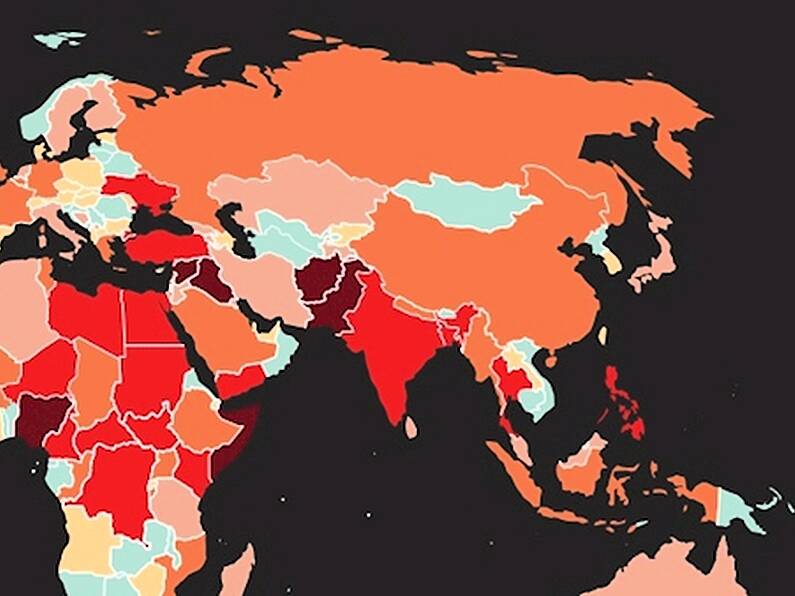Ireland is ranked nine out of 31 European countries in an international 'index' assessing the impact of terrorism on countries.
Ireland is positioned behind neighbours that have been hardest hit by jihadist-inspired attacks, such as Britain, France and Germany, but is ahead of states like Italy, Austria and Denmark.
The 2018 Global Terrorism Index, compiled by the Institute for Economics & Peace (IEP), shows a major reduction in the number of deaths in Western Europe from terrorism in 2017 – a trend that has continued this year.
But it cautions that while the number of fatalities has fallen in Western Europe, the number of actual terrorist incidents has increased.
Speaking at the Irish launch of the report, Serge Stroobants of the IEP said the substantial reduction in deaths was a “direct result” on the reduced capability of ISIL in Syria.
He said the large-scale attacks in Europe had disappeared and that now Europe was facing a homegrown and less well-organised threat.
The Index also warns of a rise in far-right terrorism in Western Europe and North America.
According to the report, Ireland ranks 65 in the world (down one) of 163 states.
Ireland has a point scoring of 3, in an index ranging from 0-10, in what is described as a “low” impact of terrorism.
On the top of the table are Iraq (9.7), Afghanistan (9.4), Nigeria (8.7) and Syria (8.3).
Speaking at the report launch in the Institute of International and European Affairs, Mr Stroobants said that between them Afghanistan and Iraq accounted for more than half of all terrorist deaths globally and that only around 1% of them occurred in Europe.
In Europe, Ireland ranks ninth of 31 countries. Turkey has the highest rank (7), followed by the UK (5.6), France (5.5), Germany (4.6), Greece (4.3), Belgium (4), Spain (4) and Sweden (3.9).
The report said the biggest improvement was in Europe, which had the largest percentage decrease in deaths (down 75%) from terrorism of any region in the world.
This was mainly due to a major fall in fatalities in Turkey (down from 659 to 123).
It said there were also significant improvements in France, Belgium and Germany – countries which had suffered from major vehicular and explosive terror attacks in Nice, Brussels and Berlin in 2016.
The report said all of these attacks were claimed by ISIL (also known as ISIS).
The situation in the UK worsened, in part due to the suicide bombing at the Ariana Grande concert in Manchester that killed 23 people and injured 119.
The UK is ranked 28 in the world, a rise of seven places.
The report said the situation in Spain had “deteriorated significantly” and jumped 38 places internationally to 50 in the global ranking.
This is due to the vehicular attack in Barcelona that killed 23 people and injured 101 more.
It said that overall Western Europe recorded a marked fall of 52% in terrorism, with deaths dropping from 168 in 2016 to 81 to 2017.
“This trend has continued in 2018 with only eight deaths being recorded to October 2018,” the report said.
As well as Spain and the UK, the report said there had been a rise in terrorism-related deaths in Sweden, Finland and Austria.
It added: “Despite the [overall] fall in deaths, the number of terrorist incidents increased to 282 in Europe, up from 253 in the prior year.”
It said at least eight countries in Western Europe recorded at least one death from terrorism in 2017, the highest number in the past 20 years.
The report said there was a growing threat from right-wing terrorism in the last five years, with 17 deaths and 46 attacks in 2017.
There were 12 attacks in the UK, six in Sweden and two each in Greece and France.






